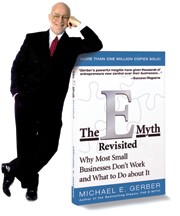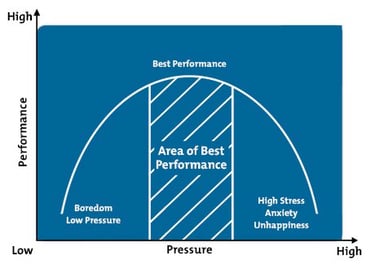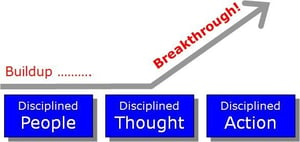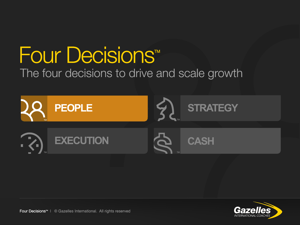![MG-0060 Working Relationships That Work [Color]_Page_29](https://strategicdiscipline.positioningsystems.com/hs-fs/hubfs/MG-0060%20Working%20Relationships%20That%20Work%20%5BColor%5D_Page_29.jpg?width=300&name=MG-0060%20Working%20Relationships%20That%20Work%20%5BColor%5D_Page_29.jpg) Working Relationships That Work is from my first E-Myth Management Module, as an E-Myth Coach.
Working Relationships That Work is from my first E-Myth Management Module, as an E-Myth Coach.
It reflects an idea outlined in the first paragraph of this process:
“According to The E-Myth Point of View, your business needs to be "a game worth playing," not only for you, but for employees, customers, and anyone else who comes into contact with it. What is a game worth playing? It's any endeavor that has meaning for people, that leads people to transcend the minor details of the moment for a higher purpose. People need to have a connection to a higher purpose. It's essential - and it's the thing most people will tell you is missing from their lives.
Every game needs a set of rules. (Can you think of any game that doesn't have rules?) And the best games have the best rules.”
Working Relationships That Work provided a set of rules for working with employees to attain high results. It included a form for how to delegate, and ground rules for management by agreement and management by exception.
 The E-Myth demanded the business and each employee have a purpose. The E-Myth was all about systems, starting with the business owner being aware of his own purpose, which they called Your Primary Aim.
The E-Myth demanded the business and each employee have a purpose. The E-Myth was all about systems, starting with the business owner being aware of his own purpose, which they called Your Primary Aim.
Balance Between Rules and Performance
A recent article in the New Yorker, What Makes People Feel Upbeat at Work, offers some key insights into rules, relationships, and effectiveness.
Researchers explored whether policies aimed at emotional management in a workplace would succeed. Three hundred and eighty-two employees, rated the degree of explicitness of the rules governing their emotional behavior at work: They ranged from vague, ambiguous admonitions such as “be positive,” without any guidelines; to on the other end, explicit rules to govern when you should smile, what you should say, and the like.
 They discovered an inverted-U relationship between rule explicitness and effectiveness: When rules are overly vague or overly prescriptive, they demotivate. (The survey revealed customers, were disappointed too, giving both employees and their shopping experiences lower ratings.)
They discovered an inverted-U relationship between rule explicitness and effectiveness: When rules are overly vague or overly prescriptive, they demotivate. (The survey revealed customers, were disappointed too, giving both employees and their shopping experiences lower ratings.)
Rules have their intended effect in the moderate range: when there were some explicit guidelines, but flexibility in how they were to be implemented. Another study, of salespeople, found sales were higher in environments with moderate rules, while environments with too few or too many rules suffered.
Highest performers were those in a moderately regulated environment who also felt a high degree of autonomy, as determined by their responses to a single statement:
“My job permits me to decide on my own how to go about doing the work.”
People want to feel in control, to be afforded respect, and to determine on their own how to act. Autonomy helps foster emotional positivity.
Some insights on rules come from Alicia Grandey, an organizational psychologist at Penn State who studies emotional labor, who is interviewed in the article. She suggests we are all still a bit like our two-year-old selves: tell a toddler exactly what to do and what not to do, and she balks. Let her figure it out within a certain framework, and she is happy.
Challenged
Recent research suggests relationships work best when your partner challenges you. When I think back to the working relationships where I did my best work it was with a mentor or leader who challenged me. Someone who believed in me, helped me to see how to grow and improve, and in some cases saw more in me, then I did in myself.
If you’ve ever had someone who you knew was in your corner, had confidence and faith in you, challenged you with work they believed you could perform well on, and then supported you in your endeavors, you know how liberating and satisfying it feels.
Finding the right people, developing, and organizing them within the right set of rules, organization, and accountability is key to your success. To explore tools and resources to help your team achieve, contact us today to schedule a free exploratory meeting.
Growth demands Strategic Discipline.
 To build an enduring great organization, requires disciplined people, disciplined thought, disciplined action, to produce superior results, and make a distinctive impact in the world.
To build an enduring great organization, requires disciplined people, disciplined thought, disciplined action, to produce superior results, and make a distinctive impact in the world.
Discipline sustains momentum, over a long period of time, laying the foundations for lasting endurance.
A winning habit starts with 3 Strategic Disciplines: Priority, Metrics and Meeting Rhythms. -2.jpg?width=300&name=3%20Disciplines%20of%20Execution%20(Strategic%20Discipline)-2.jpg) Forecasting, accountability, individual, and team performance improve dramatically.
Forecasting, accountability, individual, and team performance improve dramatically.
Meeting Rhythms achieve a disciplined focus on performance metrics to drive growth.
Let Positioning Systems help your business achieve these outcomes on the Four most Important Decisions your business faces:
|
DECISION |
RESULT/OUTCOME |
|
PEOPLE |
|
|
STRATEGY |
|
|
EXECUTION |
|
|
CASH |
|
Positioning Systems helps mid-sized ($5M - $250M) business Scale-UP. We align your business to focus on Your One Thing! Contact dwick@positioningsystems.com to Scale Up your business! Take our Four Decisions Needs Assessment to discover how your business measures against other Scaled Up companies. We’ll contact you.
 NEXT BLOG – People – A Harmonious Culture of Accountability.
NEXT BLOG – People – A Harmonious Culture of Accountability.
The Result of getting the People Decision right in your business is a Harmonious Culture of Accountability. For years I’ve loved quotes, saving those I feel are best to remember and inspire me. Next blog I’ll highlight some of the best people quotes in hope to inspire you!






.jpeg?width=150&height=135&name=Hand%20with%20marker%20writing%20the%20question%20Whats%20Next_%20(1).jpeg)

